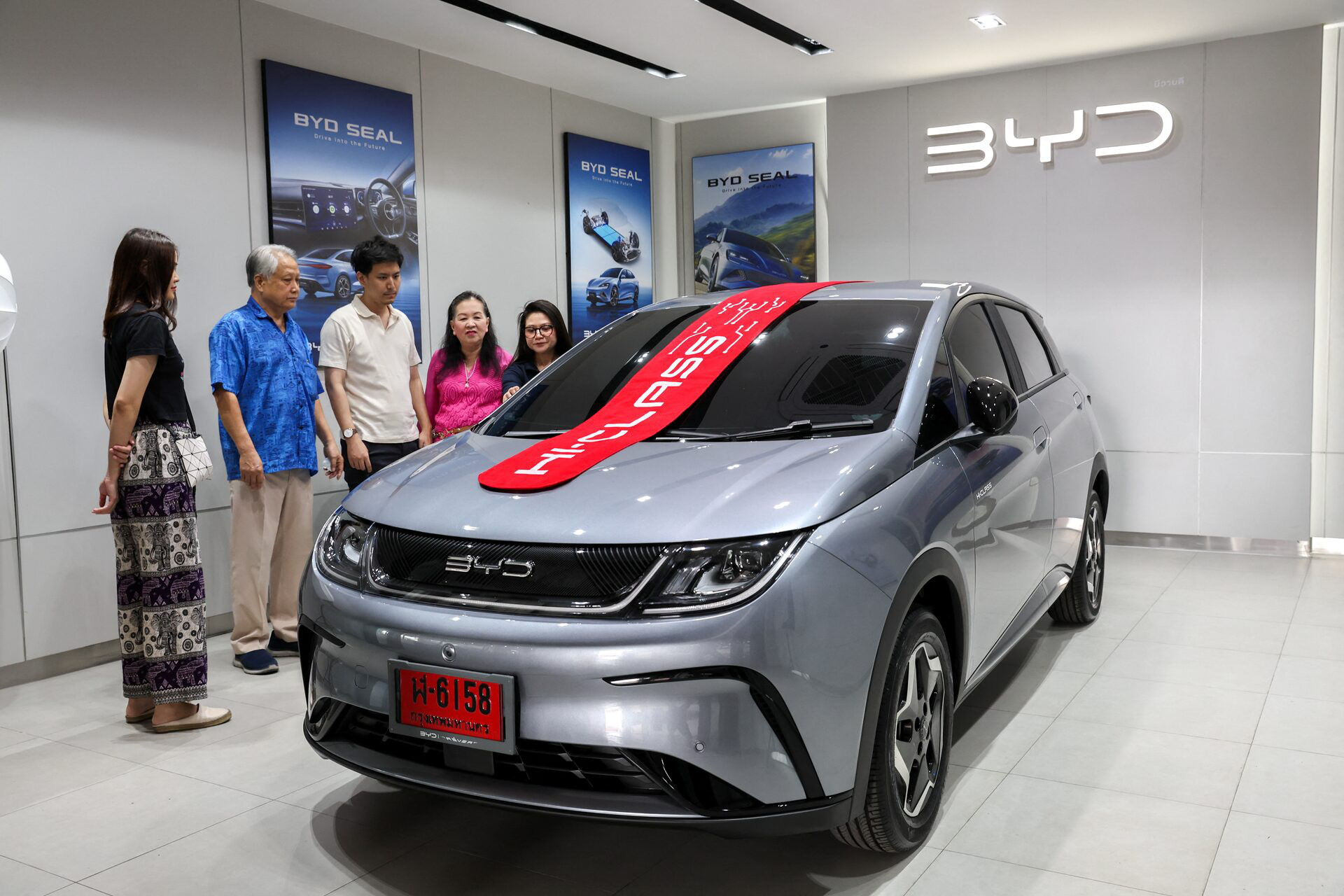On May 10, US media reported that the White House was about to announce a series of new tax policies targeting imported goods from China, likely rekindling the US-China trade war that has been simmering for many years.

According to the Wall Street Journal, one of the highlights of this new tax policy is the quadrupling of import tariffs on Chinese electric vehicles, as well as sharply increasing tariffs on many strategic industries. These policies are expected to be announced as early as May 14.
Bloomberg quoted a well-informed source as confirming that the focus of the new US tax policy is on strategically competitive industries, or industries closely linked to national security such as important minerals, solar power generation equipment, batteries...
In particular, US officials are paying close attention to the electric vehicle sector. Sources confirm that the White House will increase the import tax on electric vehicles from the current 25% to 100%. Not stopping there, the US will also impose an additional 2.5% tax on all vehicles imported from China.
In fact, the current 25% tax rate is considered too high, causing the presence of Chinese electric vehicles in the US to be almost zero. Therefore, if there is a tax increase to 100%, it is clearly intended to prevent all Chinese electric vehicles from rolling on the streets of the US.
The upcoming tariff policy is essentially the result of a review of all import tariffs imposed on Chinese goods by the Trump administration, a process that began in 2022 and is only now being completed.
The reason for the delay is due to internal disagreements among Biden’s economic advisers. On the one hand, trade officials support raising tariffs to limit the competitiveness of Chinese goods, but on the other hand, Treasury Secretary Janet Yellen and many others suggest raising tariffs only on strategic goods and reducing tariffs on consumer goods to help households save money.
While US officials have been hesitant, Beijing has been ramping up its manufacturing industry in the hope that exports will help revive its economy, and this has prompted US officials to be more decisive. With European automakers struggling to cope with the wave of Chinese electric vehicles, Washington feels the need to act faster to protect its domestic manufacturing industry.
Even Elon Musk - the boss of the world's largest electric car company Tesla - has to admit that Chinese car companies are the "most competitive" players in the world.
“If they don’t put up trade barriers, they could crush almost every competitor in the world,” Musk said during Tesla’s earnings call in January.
The news that the US is about to increase tariffs on Chinese goods has many sides worried about the US-China trade war, the trade war between the world's two largest economies has once again heated up. The "smell of gunpowder" began to waft in the press conference room of the Chinese Foreign Ministry on the afternoon of May 10 when spokesman Lin Jian criticized Washington's upcoming move: "We demand that the US side comply with the regulations of the World Trade Organization and cancel all import tariffs on China. China will take all necessary measures to protect its rights and interests."
Over the past few years, both the US and China have been actively preparing for this scenario. Chinese companies have been actively replacing machinery and components with domestic goods or imported goods from other developed countries. Trade between China and Russia, ASEAN and many countries in the Southern Hemisphere has surpassed trade between China and the US and Europe.
On the other hand, leading American and Western corporations such as Apple, HP, Stellantis... are also looking for ways to move their production lines out of China.
More than a third of US companies surveyed by the US-China Business Council said they had reduced or suspended investment plans in China in 2023.
“The world is splitting into rival blocs,” said Noah Barkin, senior adviser at consulting firm Rhodium Group. “This is creating an inertia that could accelerate over time, and governments will have a hard time controlling it.”
Many experts fear that this decoupling trend will slow down the world's economic growth. In October 2023, the International Monetary Fund warned that if the world economy polarizes into two factions, global GDP could fall by up to 7%.
The political context is the driving force for Mr. Biden to accelerate protectionist policies. Mr. Trump - Mr. Biden's direct opponent - affirmed that he would consider imposing a tariff of at least 60% on all Chinese goods if elected.
With American businesses extremely fed up with having to compete with cheap Chinese imports, Mr. Trump’s remarks are like the first rain of the season. If he cannot prove that he is as willing to take a tough stance on Chinese goods as Mr. Trump, Mr. Biden will likely lose the support of many domestic manufacturing businesses.
Therefore, in April, when he came to Pennsylvania, Mr. Biden affirmed that he would sharply increase import taxes on Chinese steel "to protect American workers and ensure fair competition".